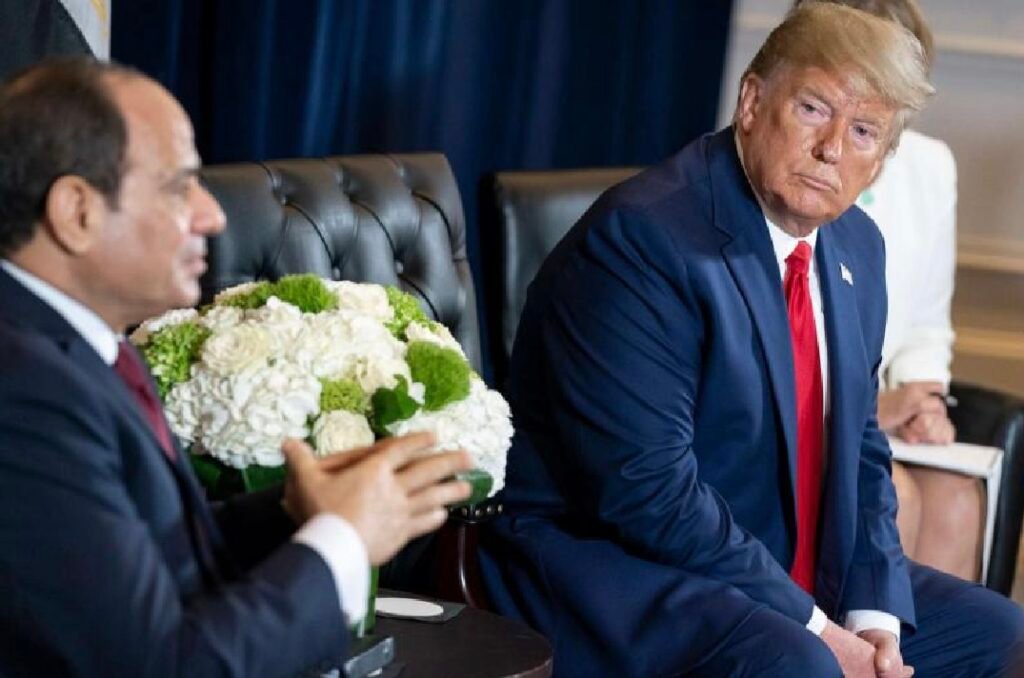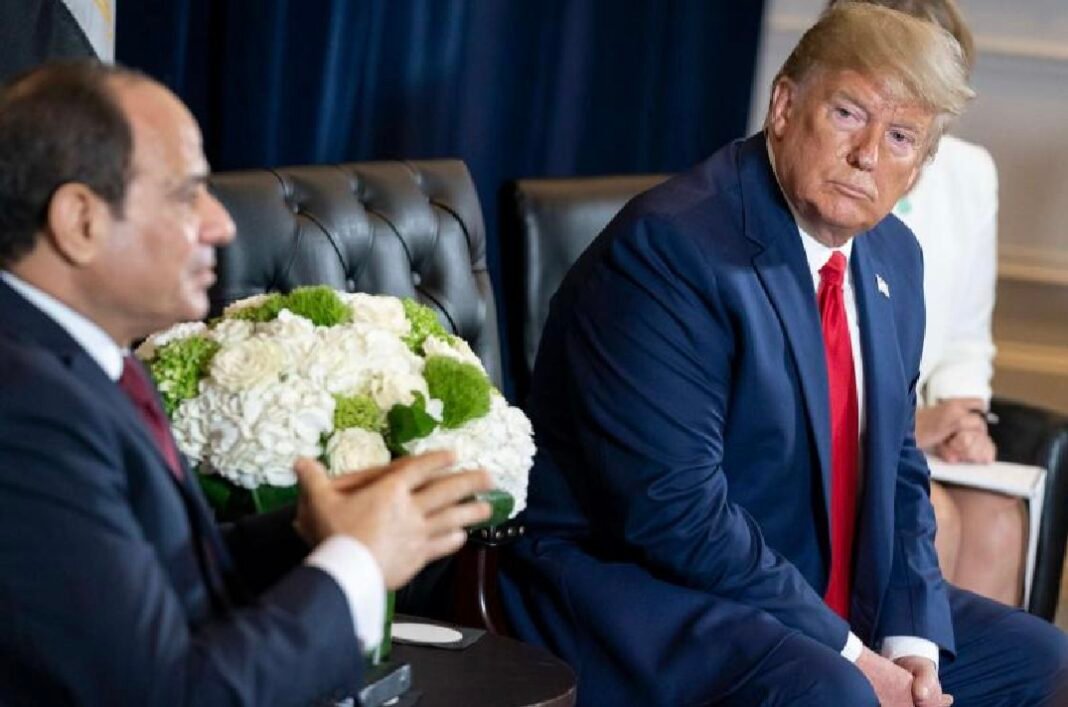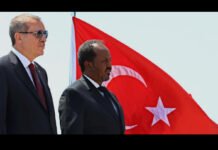By Horn Africa News Staff
Washington, D.C. — U.S. President Donald Trump has expressed optimism that the long-running dispute over the Grand Ethiopian Renaissance Dam (GERD) can be resolved swiftly, emphasizing the critical importance of the Nile River for Egypt’s survival.

Speaking during a meeting at the White House with NATO Secretary General Mark Rutte, Trump commented on the ongoing tensions surrounding Africa’s largest hydroelectric project. “If I am Egypt, I want to have water in the Nile, and we are working on that,” he said, pointing to Egypt’s reliance on the Nile for 97% of its water supply.
The U.S. President described the GERD as “closing up water going to the Nile,” a characterization that underscores the concerns raised by downstream countries, particularly Egypt and Sudan. “It is nice when the Nile River has water,” Trump added, referring to the river as “a very important source of income and life.”
Trump also questioned the international community’s handling of the dam’s development. “I think the United States funded the dam. I do not know why they didn’t solve the problem before they built the dam,” he remarked. Nevertheless, he expressed confidence that a diplomatic breakthrough could be achieved soon: “We think we are going to have that solved very quickly.”
The GERD, a $4.6 billion project constructed by Ethiopia on the Blue Nile, began in 2011 and has since been a major source of regional tension. Ethiopia considers the dam essential for its development and electricity generation, while Egypt and Sudan have raised alarms over water security and dam safety.
Ethiopia has completed the dam’s filling in five stages from 2020 to 2024 and is preparing to officially inaugurate the project in September, according to Prime Minister Abiy Ahmed. While Cairo and Khartoum say they support Ethiopia’s right to development, they have repeatedly criticized Addis Ababa’s unilateral actions, especially the filling of the dam without a binding agreement.
Efforts to mediate a resolution have spanned more than a decade, involving the African Union, the United Nations, and several international partners, including the United States. However, negotiations have repeatedly stalled. In December 2023, Egypt announced that talks had collapsed, blaming Ethiopia for rejecting key proposals on the dam’s legal and technical operations.
Sudan, which also lies downstream of the dam, has voiced similar concerns, warning that Ethiopia’s actions could endanger the safety of its own dams and jeopardize millions of lives.
While Trump’s administration had previously played a role in attempting to mediate the GERD dispute, this latest statement comes amid renewed calls for a comprehensive, legally binding agreement that ensures equitable and sustainable use of the Nile’s waters.
Whether Trump’s optimism will translate into concrete diplomatic progress remains to be seen, but his remarks are likely to reignite debate around one of Africa’s most consequential water and security issues.





